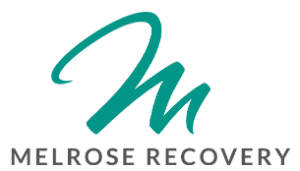Trazodone Side Effects
Trazodone Side Effects – Welcome to Melrose Recovery, your pathway to transformation and healing. Located in the vibrant heart of Los Angeles, California just moments away from iconic Hollywood and the picturesque beaches of Santa Monica and Venice, we are dedicated to changing lives. Since 2015, our comprehensive Trazodone overdose treatment approach encompasses detoxification, residential care, and aftercare services, all tailored to meet each individual’s unique needs on their recovery journey.
Led by a compassionate team of addiction professionals and counselors, we offer a range of therapy programs designed to support and guide individuals suffering Trazodone toward lasting sobriety. At Melrose Recovery, we believe in the power of personalized care and diverse treatment options to pave the way for a brighter future.

Trazodone Addiction, Side Effects and Treatment – Trazodone Side Effects
Trazodone is a prescription antidepressant primarily used to treat major depressive disorder. It works by increasing levels of serotonin in the brain, a neurotransmitter that plays a key role in mood regulation, anxiety control, and sleep. While its main use is for depression, trazodone is often prescribed off-label as a sleep aid due to its sedative properties. Although the risk of physical addiction is relatively low, misuse of trazodone (TRZ) can lead to psychological dependence and, in some cases, addiction.
Can You Become Addicted to Trazodone? – Trazodone Side Effects
Trazodone is not considered a controlled substance and does not produce a euphoric “high” like opioids or benzodiazepines, which makes it less likely to be habit-forming. However, some individuals may become psychologically reliant on it, especially for sleep. Abrupt discontinuation can result in withdrawal symptoms such as anxiety, restlessness, and insomnia. This article will explore the side effects, signs of misuse, withdrawal symptoms, and treatment options available—particularly through professional care like Muse Treatment in Los Angeles.
Common Side Effects of Trazodone – Trazodone Side Effects
The most frequently reported side effect is excessive drowsiness, which can interfere with daily functioning. Many users experience lingering grogginess the next day—commonly referred to as a “trazodone hangover.” This sedation can impair motor skills and mental alertness, making activities such as driving potentially dangerous. Doctors typically recommend taking trazodone at bedtime with enough time (7–8 hours) allocated for sleep.
A rarer but serious side effect is priapism—a prolonged, painful erection that lasts more than four hours and occurs without sexual arousal. This condition requires immediate medical attention to avoid long-term complications, including permanent erectile dysfunction. Because of this risk, healthcare providers carefully assess patient history before prescribing trazodone, especially in men.
How Trazodone Affects the Body – Trazodone Side Effects
Trazodone impacts several neurotransmitters, primarily serotonin, to help stabilize mood and improve sleep. It may also interact with histamine and alpha-adrenergic receptors, contributing to its sedative and calming effects.
Common side effects include:
-
Dizziness
-
Dry mouth
-
Lightheadedness
-
Changes in appetite or weight
Severe side effects (seek immediate medical attention):
-
Blurred vision
-
Chest pain
-
Fainting
-
Cognitive impairment
-
Seizures
-
Shortness of breath
-
Suicidal thoughts
-
Painful erections
-
Unexplained bruising or bleeding
Always consult your doctor before combining trazodone with other medications, supplements, or vitamins, as interactions can occur.
Signs of Trazodone Misuse or Overdose – Trazodone Side Effects
Although trazodone doesn’t typically lead to compulsive drug-seeking behavior, misuse—such as taking higher doses than prescribed or combining it with other substances—can be dangerous or even fatal. Signs of abuse or overdose include:
-
Irregular or rapid heartbeat
-
Breathing difficulties
-
Excessive sedation or unconsciousness
-
Seizures
-
Nausea or vomiting
-
Persistent painful erection
If you suspect someone is experiencing a trazodone overdose, call 911 immediately. If trained, administer CPR until emergency responders arrive.
Long-Term Effects of Trazodone Use – Trazodone Side Effects
Data on long-term trazodone use is limited. For most people, side effects diminish once the medication is discontinued. However, prolonged misuse may contribute to worsening mental health, sleep disruption, or increased reliance on sedative effects. Always take trazodone under medical supervision and report any side effects or changes in condition to your healthcare provider.
When Trazodone May Not Be Recommended – Trazodone Side Effects
Trazodone may not be suitable for everyone. It carries a black box warning for an increased risk of suicidal thoughts and behaviors, especially in young adults and adolescents. The elderly may also be more vulnerable to side effects like cognitive impairment and falls.
Additionally, trazodone may not be recommended for:
-
People with heart conditions due to the risk of arrhythmias
-
Those taking MAO inhibitors (due to serotonin syndrome risk)
-
Patients managing multiple medications with potential for interaction
Trazodone Withdrawal: Does It Happen? – Trazodone Side Effects
Yes. Though not traditionally addictive, stopping trazodone suddenly can trigger discontinuation symptoms, including:
-
Anxiety
-
Agitation
-
Insomnia
-
Nausea
-
Muscle aches
-
Tremors
To avoid withdrawal, doctors recommend tapering off the medication gradually. This process, guided by a healthcare professional, allows your body to adjust and reduces the severity of symptoms. The tapering period may vary based on your dosage, duration of use, and overall health.
Treating Trazodone Dependence – Trazodone Side Effects
While trazodone has a low risk of dependence, addiction can still develop in cases of misuse. Recovery typically begins with a medical evaluation and the development of a personalized treatment plan. Treatment may include:
-
Medically supervised detox to safely taper off trazodone
-
Inpatient or outpatient rehab depending on the severity of dependence
-
Therapies like Cognitive Behavioral Therapy (CBT) to address underlying mental health concerns and build healthier coping strategies
-
Aftercare support, such as ongoing counseling and support groups to maintain long-term recovery
Get Help at Muse Treatment in Los Angeles – Trazodone Side Effects
If you or someone you love is struggling with trazodone misuse, professional help is available. Muse Treatment offers customized inpatient and outpatient programs for prescription drug addiction. Our programs combine medical care, therapy, and holistic support to help you overcome addiction and build a healthier future.
Contact Muse Treatment or Melrose Recovery today to learn more about how we can help you or your loved one safely recover from trazodone dependence.
Frequently Asked Questions About Trazodone – Trazodone Side Effects
What is Trazodone?
Trazodone is an antidepressant medication primarily used to treat major depressive disorder (MDD).
What class of drug is Trazodone?
It belongs to the class of serotonin antagonist and reuptake inhibitors (SARIs).
Is Trazodone used for anything other than depression?
Yes, it is often prescribed off-label for insomnia, anxiety, and sometimes chronic pain.
How does Trazodone work?
It increases serotonin activity in the brain by inhibiting its reuptake and blocking certain serotonin receptors.
Is Trazodone addictive?
Trazodone is not considered addictive, but it should be taken as prescribed to avoid withdrawal symptoms.
What is the typical dosage of Trazodone for depression?
Typical starting dose is 150 mg per day, which may be adjusted depending on the patient.
What is the typical dosage of Trazodone for insomnia?
Low doses, usually 25–100 mg at bedtime, are used off-label for sleep.
Can Trazodone be taken with food?
Yes, taking it with food can help reduce stomach upset and improve absorption.
How long does Trazodone take to work for depression?
It may take 2–4 weeks to feel the full effects for depression.
How quickly does Trazodone work for sleep?
It can start working within 30–60 minutes when used as a sleep aid.
What are common side effects of Trazodone?
Drowsiness, dizziness, dry mouth, headache, and blurred vision.
Can Trazodone cause weight gain?
Some users report weight gain, though it’s generally less likely than with other antidepressants.
Does Trazodone affect sexual function?
It may cause sexual dysfunction, including decreased libido or delayed ejaculation.
Can Trazodone cause withdrawal symptoms?
Yes, especially if stopped abruptly. Symptoms may include anxiety, irritability, and sleep disturbances.
Is it safe to drive while taking Trazodone?
Caution is advised, especially when starting the medication, as it can cause drowsiness.
Can you take Trazodone with alcohol?
No, combining Trazodone and alcohol can increase drowsiness and risk of side effects.
Does Trazodone interact with other antidepressants?
Yes, especially other serotonergic drugs, which can increase the risk of serotonin syndrome.
Is Trazodone safe during pregnancy?
It should be used only if clearly needed; consult a doctor for risks and benefits.
Can Trazodone be used in children?
It is not FDA-approved for use in children and adolescents for depression.
Are there serious risks associated with Trazodone? – Trazodone Side Effects
Rare but serious risks include priapism (prolonged erection), serotonin syndrome, and suicidal thoughts in young people.
Is Trazodone a controlled substance? – Trazodone Side Effects
No, it is not classified as a controlled substance in the U.S.
Can Trazodone be crushed or split? – Trazodone Side Effects
Some tablets can be split, but extended-release formulations should not be crushed. Check with a pharmacist.
Can Trazodone be used long term? – Trazodone Side Effects
Yes, with medical supervision. It is often used long term for chronic depression or insomnia.
How is Trazodone different from SSRIs? – Trazodone Side Effects
Trazodone blocks certain serotonin receptors in addition to inhibiting serotonin reuptake, whereas SSRIs only inhibit reuptake.
What should I do if I miss a dose of Trazodone? – Trazodone Side Effects
Take it as soon as you remember, unless it’s close to the next dose. Do not double up.
Don’t Wait to Look for a Drug Addiction Treatment Program
Health Insurance PPO Plans for Trazodone Side Effects
PPO Plans for Melrose Recovery Trazodone Side Effects Rehab in Los Angeles, California
Finding effective treatment for drug and alcohol addiction is one of the most important steps in the recovery journey. For many individuals and families, navigating how to pay for rehab can be a major concern. Fortunately, Melrose Recovery, a leading addiction treatment center in Los Angeles, California, accepts a wide range of PPO (Preferred Provider Organization) health insurance plans, making high-quality care more accessible and affordable.
Why Choose Melrose Recovery?
Melrose Recovery offers a structured and supportive environment for individuals seeking recovery from substance use disorders. Their programs include:
-
Medical Detox
-
Residential Inpatient Treatment
-
Dual Diagnosis Treatment
-
Individual and Group Therapy
-
Aftercare Planning
What sets Melrose apart is their client-centered approach, experienced clinical team, and commitment to long-term recovery. Located in Los Angeles, the facility provides a safe and comfortable setting to begin healing.
What Are PPO Insurance Plans?
PPO insurance plans allow policyholders to see healthcare providers both inside and outside of their insurance network, usually without a referral. When it comes to addiction treatment, this flexibility can be vital.
Key PPO benefits for rehab coverage:
-
Out-of-network options: You can still receive coverage for facilities not directly in your provider’s network.
-
No referral needed: You don’t need a referral from a primary care physician to start treatment.
-
More provider choices: PPO plans give you more freedom to choose the rehab facility that fits your needs.
Does Melrose Recovery Accept My PPO Insurance?
Melrose Recovery works with most major PPO insurance providers, including but not limited to:
- Aetna
- AmeriHealth
- Anthem
- Blue Cross Blue Shield
- Cigna
- Hawaii Medical Service Association (HMSA)
- Humana
- Kaiser Permanente
- Medical Mutual
- Premera Blue Cross
- UnitedHealthcare
Melrose Recovery’s admissions team is available 24 hours a day 714-442-7782 to verify your insurance benefits quickly and confidentially. This process helps determine your coverage, deductible, co-pays, and out-of-pocket maximums before starting treatment.
Verifying Insurance Coverage
To find out if your PPO insurance plan covers treatment at Melrose Recovery:
-
Call Melrose Recovery directly – Speak with an admissions specialist who can walk you through the insurance verification process.
-
Submit insurance info online – Many treatment centers, including Melrose, offer a secure online form for quick verification.
-
Check with your insurer – You can also contact your insurance company directly and ask about your behavioral health benefits.
The Importance of Getting Help
Addiction is a chronic and progressive condition—but with the right support, recovery is absolutely possible. By accepting a variety of PPO plans, Melrose Recovery helps reduce financial barriers to care, so individuals and families can focus on healing rather than costs.
Take the First Step Today
If you or a loved one is struggling with addiction, don’t wait. Melrose Recovery in Los Angeles offers compassionate, evidence-based care in a supportive setting. With PPO insurance coverage, treatment may be more affordable than you think.
Contact Melrose Recovery today to learn more about admissions and insurance verification. Your path to recovery can start now.





Get In Touch
info@melroserecovery.com
501 North Mariposa Ave, Los Angeles, CA 90004



